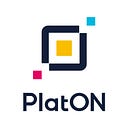PlatON Unveils AA Wallet PlaTrust, with Bounty Program Kicking Off Simultaneously
Digital public infrastructure PlatON announced its latest offering PlaTrust Wallet, an AA (Account Abstraction) wallet based on EIP-4337. This launch marks another stride by PlatON in advancing blockchain infrastructure, as it provides users with a more secure, autonomous, and efficient experience in managing crypto assets and permissions.

PlaTrust Wallet: Next-gen Security and Management for Crypto Assets
Wallets, the gateway to Web3, represent a primary channel for users to explore blockchain ecosystems. As key tools for managing, storing, and exchanging crypto assets, they build bridges for identity authentication and transactions across various DApps (decentralized applications).
That said, when it comes to the user experience, today’s wallets are anything but convenient. Imagine having to log in multiple times when you try to like, retweet, or comment on a fun tweet. Besides, private keys and their management also create hidden barriers to entry. What’s worse, the expensive gas fees and the risk of theft only add more complexity to the problematic user experience.
PlaTrust Wallet is an AA wallet developed by PlatON to meet the demand for enhanced asset security and more user-friendly management, offering a seamless experience. Built on EIP-4337, this multi-signature contract wallet offers a rich set of robust features, including the gasless experience, threshold-based multisig, session without multi-signature, lock/recovery/upgrade, custom role control, custom modules, account whitelist, censorship resistance, and multi-chain support.
- Threshold-based Multisig: PlaTrust Wallet manages assets in a multi-signature form based on the specified threshold.
- Session without Multi-Signature: The feature enables exemption from multisig operations within a specific period to provide convenience for transactions.
- Wallet Lock: The wallet can be locked when owners suspect their account (device) has been compromised (lost, stolen, etc.).
- Wallet Recovery: Users may recover their ownership by replacing the lost private key with a new one through a multi-signature initiated by other owners.
- Wallet Upgrade: Users can upgrade the wallet to the latest version when new features or significant vulnerabilities arise.
- Custom Role Control: Users can define different roles to control asset permissions.
- Custom Modules: User-defined modules can be added to the wallet for custom extensions.
- Gasless: Users can run the wallet without paying native tokens as gas fees.
- Account Whitelist: This function enables users to set up a whitelist of accounts, allowing certain accounts to execute cross-account operations or transfers without considering trust issues.
- Censorship Resistance: Users have full control over their accounts, eliminating the need for third-party services.
- Multi-chain Support: PlaTrust Wallet is compatible with all EVM-compatible public blockchains, making sure that the address will stay the same on different chains.
Introduction to PlaTrust Wallet:https://devdocs.platon.network/docs/en/PlaTrust_Wallet/
PlaTrust Wallet SDK User Guide:https://devdocs.platon.network/docs/en/PlaTrust-wallet-js-sdk/
Gasless Experience: Secure, Free Management of Assets and Permissions
As many find it difficult to conceptualize “Account Abstraction”, we will briefly introduce PlaTrust Wallet, a new AA wallet.
At the moment, Ethereum accounts are tightly linked to key pairs, rendering them virtually the same. In other words, if you own a private key, you control the corresponding account. However, this model also comes with its limitations and inconveniences:
- Users need to hold ETH to cover miner fees (gas fees), even when trading other tokens;
- Users are bound to specific signature algorithms (e.g., ECDSA) for transaction validation, even if they prefer more advanced or secure algorithms;
- Users must follow fixed transaction formats and validation rules, which restricts the implementation of more complex or flexible functions, such as multi-signature, social recovery, or payment caps.
Account abstraction dissociates Ethereum accounts from private keys through smart contract codes, so that users can create smart contract wallets tailored to their preferences and needs. Features enabled by account abstraction include:
- Gasless transactions where multiple tokens can be paid as the miner’s fees.
- Transaction validation via multiple signature algorithms (e.g., BLS and Schnorr).
- Transactions can be executed in different formats and validation rules (e.g., ERC-20 and ERC-721).
In a nutshell, account abstraction focuses on disassociating signers from accounts so that signers will no longer have absolute control over in-wallet assets. Once the account layer and the key layer are abstracted, users get to customize the inner logic and explore scalability on more dimensions. With account abstraction, managing crypto wallets will be as simple as managing email accounts.
PlaTrust Wallet sets itself apart from MPC wallets, multi-signature wallets, and non-AA contract wallets in the following ways:

In short, PlaTrust Wallet is an innovative contract wallet that not only inherits the advantages of EIP-4337 but also introduces practical features for enhanced security and user convenience. With PlaTrust Wallet, users can enjoy the following benefits:
- Users can save costs as they don’t have to pay gas fees;
- PlaTrust protects user assets through configurable multisig threshold and permissions;
- The wallet can be recovered, locked, and upgraded to handle all kinds of situations;
- Users can enable Session without Multi-signature to simplify operations;
- The wallet is tailored to every user demand via customizable roles and modules;
- PlaTrust allows users to set up a whitelist to filter unnecessary interference;
- With censorship resistance, PlaTrust offers users absolute account control;
- Users get to use the same wallet address across multiple chains for streamlined management.
Building the Digital Future Together
PlaTrust Wallet marks a major step in PlatON’s ongoing efforts to advance the building of digital public infrastructure. We believe that blockchain technology will lead the way in shaping the future of the digital economy, as it helps users enjoy the convenience and value of crypto assets in a more secure and free environment.
The test version of PlaTrust Wallet is now available. The project also kicked off a Bug Bounty Program in collaboration with BugRap, inviting global blockchain security experts and white hats to co-build a safer and more trustworthy blockchain ecosystem.
Join the Bug Bounty Program now at https://bugrap.io/bounties/PlatON
